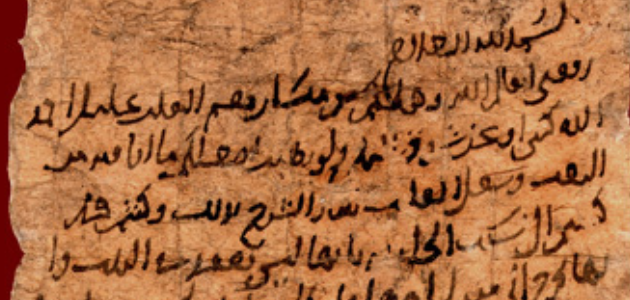Andreas Kaplony

Professor of Arabic and Islamic Studies, Ludwig-Maximilians-Universität München
Address
Contact
Andreas Kaplony (1994 PhD Zurich General History/Arabic Studies Zurich, 2001 Habilitation Zurich Islamology) is Chair of Arabic and Islamic Studies at LMU Munich. He publishes widely on the past and present of the Islamicate World. His most recent monographs (2014) deals with 25 Arabic business documents from 13th century Red Sea port al-Quṣayr al-Qadīm.
The dry climate of Egypt preserved over 300,000 documents from the 3rd millennium BCE up to the Ottoman conquest in 1517, mostly on papyrus or paper, divided more or less equally between OLD EGYPTIAN, GREEK, AND ARABIC, as well as some in Hebrew, Aramaic, Coptic, Pehlevi, and others. These documents allow for unparalleled insight into 4,500 years of continuous administrative, social, economic and legal history.
The approximately 130,000 ARABIC DOCUMENTS found in Egypt (plus as many preserved in Syria-Palestine, Khorasan, al-Andalus, etc). covering the period from the 640s to 1517 are still by far the least researched and least used. As in the history of the Ancient World and medieval Europe, using documents radically challenges what literary sources tell us. Up to now, research in Islamic history has mostly relied on literary sources; due to the poor state of conservation and lack of availability the use of the abundant documentary material has been limited. However, where original documents have been used, they have contributed to a new understanding of Islamic history.
Since 2004, almost 1,500 registered users have gone through our free, informal and easy-to-use interactive tutorial for beginners, the ARABIC PAPYROLOGY SCHOOL (www.naher-osten.lmu.de/aps). About 100 graduate students, PhD candidates, postdocs and professors from all over the world have joined our webinar for those somewhat advanced, the ARABIC PAPYROLOGY WEBCLASS (www.naher-osten.lmu.de/apw), to examine mostly unpublished documents. In a more conventional approach, a number of MA and PhD theses have been completed or are being worked on in the frame of the Munich ARABIC PAPYROLOGY RESEARCH GROUP (www.naher-osten.lmu.de/papyrology).

